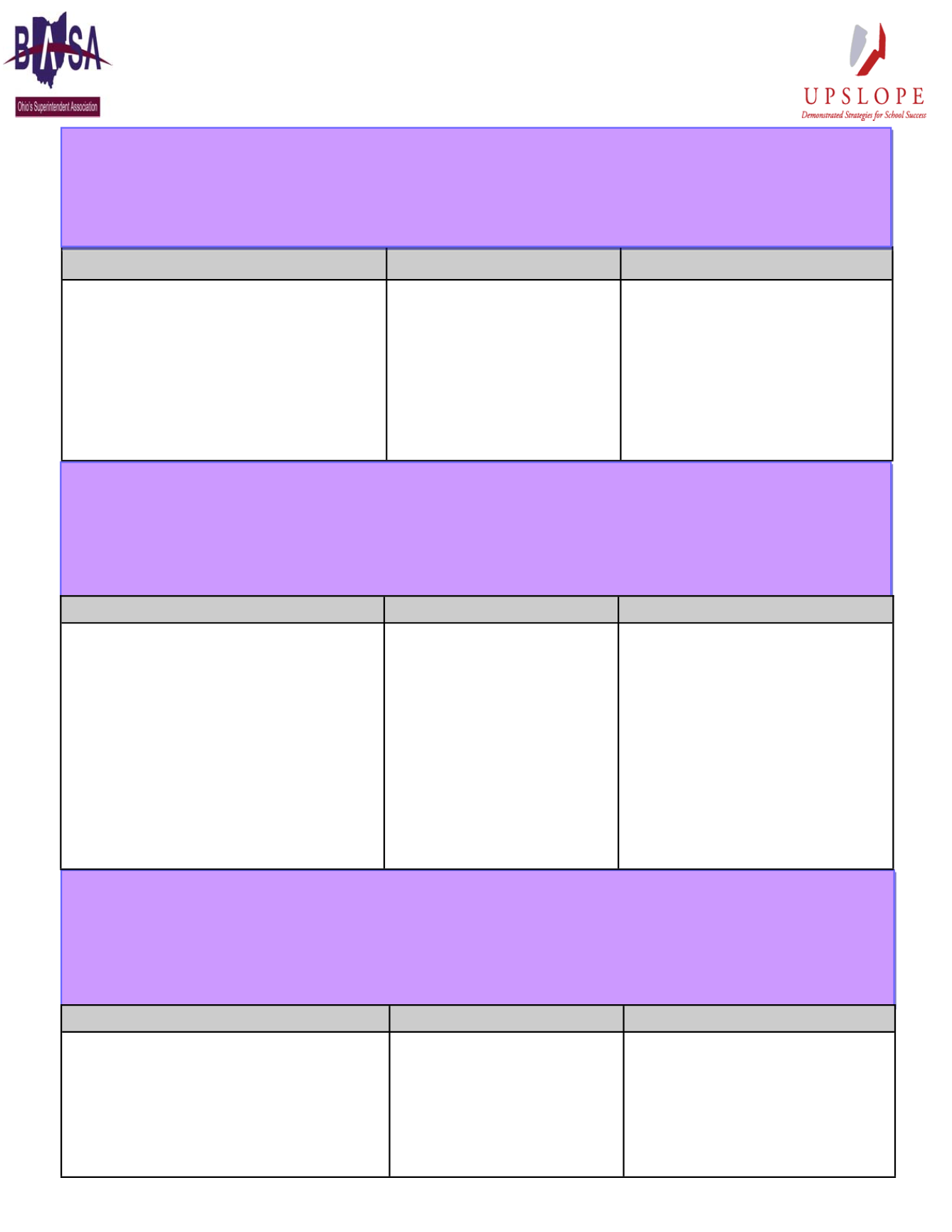

BASA and UpSlope Solutions Present:
Employee Discipline in an Education Environment
June 28-29-30, 2016
BASA Conference Room—8050 North High Street, Suite 150, Columbus, OH
Wednesday, June 29, 2016
Module #2: “Grounds for Employee Discipline”
The second segment of the program introduces the concept of the Employee Code of Conduct and explores the most
common categories of inappropriate or unacceptable actions or behaviors that form the basis for disciplinary actions.
During the session, participants will examine the role of federal laws, Ohio Revised and Administrative Codes, the Li-
censure Code of Professional Conduct for Ohio Educators, board of education policies, and master agreements in the
disciplinary process.
Thursday, June 30, 2016
Module #3: “Executing Employee Discipline”
The last segment of the program introduces several risk-reducing principles to be kept in mind before, during, and after
disciplinary actions, explores considerations for defensible progressive discipline guidelines, and reviews a basic frame-
work for investigating alleged acts of misconduct. During the session, participants will gain a working understanding of
the due process, procedural, and documentation concerns associated with disciplinary actions in Ohio.
8:30 am - 12:00 pm
12:00 pm - 1:00 pm
1:00 pm - 3:30 pm
Introduction to Seminar & Types of
Employee Discipline
Sources of Legal Risk During the Employee
Discipline Process
Considerations for Disciplinary Actions
Involving Education Employees
Considerations for Selecting or
Recommending Employee Discipline in
Specific Cases
Oral Warnings & When to Use Them
Written Warnings & When to
Use Them
Working Lunch
Considerations for the Formal
Types of Employee Discipline
Official Reprimands & When to Use
Them
Suspensions & When to Use Them
Terminations & When to Use Them
Culminating Task: Using Reasonable
& Appropriate Employee Discipline
Session Experience Survey
8:30 am - 12:00 pm
12:00 pm - 1:00 pm
1:00 pm - 3:30 pm
Introduction to Seminar & Grounds for
Employee Discipline
Considerations for Structuring the Code of
Employee Conduct
Lack of Professional Competence as Grounds
for Employee Misconduct
Differentiating District Policy Violations from
Other Forms of Employee Misconduct
Dishonesty, Records Falsification or Failure to
Accurately Provide Requested Information
Insubordination & Related Forms of Non-
Compliance
Attendance, Leave or Contract Day Policy Vio-
lations
Inappropriate, Abusive or
Offensive Conduct
Working Lunch
Considerations in Cases of
Alleged Criminal Misconduct by
Employees
Examples of Employee Misconduct
with Potential Criminal
Consequences
Examples of Employee Misconduct
with Potential Civil Consequences
Addressing Potential Gaps in the Code
of Employee Conduct
The Role of Federal & State Statutes
in the Code of Employee Conduct
The Role of Negotiated Agreements in
the Code of Employee Conduct
Session Experience Survey
8:30 am - 12:00 pm
12:00 pm - 1:00 pm
1:00 pm - 3:30 pm
Introduction to Seminar & Executing
Employee Discipline
Principles for the Execution of Employee
Discipline within the LEA
Progressive Discipline Guidelines for
Employees
Investigating Alleged Acts of Employee Miscon-
duct or Lack of Professional Competence
Informal Employee Discipline:
Executing an Oral Warning or a
Written Warning
Working Lunch
Formal Employee Discipline:
Executing an Official
Reprimand
Formal Employee Discipline:
Executing a Suspension
Formal Employee Discipline:
Executing a Termination
Session Experience Survey
Tuesday, June 28, 2016
Module #1: “Types of Employee Discipline”
The first segment of the program focuses on the most common disciplinary options used in Ohio schools. During the
session, participants will consider the ways in which these measures can create risk for districts, schools, and/or
members of the leadership team when used unreasonably or inappropriately while working in a collaborative setting to
evaluate video-based re-enactments of actual disciplinary cases in Ohio and across the country.














